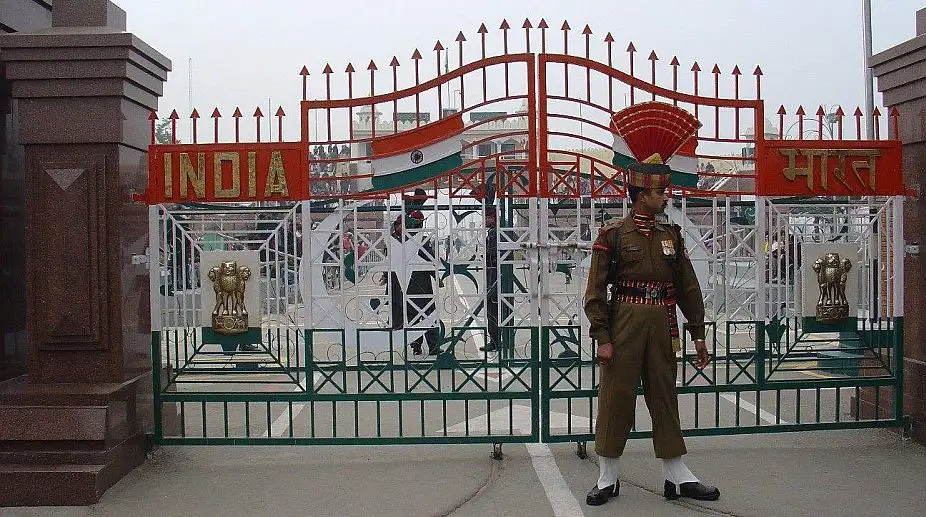Pahalgam Terror Attack Fallout: India Closes Attari Border, Raising Concerns Over Indo-Pak Trade Ties
The recent terror attack in Jammu and Kashmir’s Pahalgam region has escalated tensions between India and Pakistan once again. In response, India shut down the Attari border crossing — a key trade link between the two countries.

This move, intended as a strong signal to Islamabad, could significantly disrupt cross-border trade, especially for goods that rely on quick transit. Let’s break down what led to this development, the political responses from both sides, and how this decision might reshape Indo-Pak trade in the coming days.
What Happened in Pahalgam?
On Tuesday evening, terrorists ambushed an army convoy near Pahalgam in south Kashmir, killing multiple Indian soldiers. Investigators suspect foreign-trained militants crossed over through border routes and carried out the strike.
Although no group has claimed responsibility so far, Indian officials believe the attack involved actors with ties to networks operating from across the border. The incident reignited concerns over Pakistan’s alleged support for terrorist outfits targeting India.
Pakistan Denies Any Role
Pakistan’s Defence Minister Khawaja Asif pushed back against the accusations during a televised interview on Wednesday. “Pakistan has nothing to do with it. These are baseless accusations aimed at maligning our country,” he said.
Despite his denial, Indian leaders continue to urge global powers to hold Pakistan accountable for harboring terrorists who target Indian soil.
India Shuts Attari Border: A Clear Signal
Reacting swiftly, Indian authorities halted trade and movement through the Attari-Wagah border. Located in Punjab, the Attari crossing remains the only operational land trade route between the two countries.
By closing it, India has emphasized that business cannot continue as usual when terrorism threatens national security.
Who Stands to Lose?
The sudden border shutdown has already affected traders on both sides. Indian exporters who send cotton yarn, textiles, and chemicals to Pakistan now face order cancellations and financial losses. Likewise, Pakistani importers are scrambling to find alternatives for medicines, raw materials, and food items they usually buy from India.
Several traders from Amritsar and Lahore say they’ve suffered losses overnight due to the stoppage. For businesses dealing in perishable items like fruits and dairy, the impact could be even more severe if the closure continues.
India had already scaled back trade ties with Pakistan after the 2019 Pulwama terror attack. Yet the Attari route still handled roughly ₹2,000 crore worth of trade annually. With this move, even that limited exchange has come to a standstill.
Political Analysts Weigh In
Former Indian diplomat Rajiv Dogra commented that India’s decision sends a symbolic but strong message. “It’s not about how much trade is lost. It’s about telling Pakistan — we won’t tolerate violence and still do business,” he explained.
Some experts believe that this bold move could raise international pressure on Pakistan to crack down on terror networks. Others warn that unless diplomacy intervenes, these tensions could push the two nuclear neighbors further apart.
What Lies Ahead for Indo-Pak Trade?
Trade through the Attari-Wagah route may not resume soon unless the situation de-escalates. In the meantime, importers and exporters will look for alternate routes through third countries like the UAE or Singapore — a workaround that increases both cost and delay.
Business leaders on both sides have urged the governments to keep politics and security separate from economic cooperation. But given the national sentiment and ongoing security concerns, policymakers are unlikely to take that advice in the near future.
Public Reaction and Security Measures
Across India, the public has expressed anger and grief over the Pahalgam attack. Protests erupted in multiple cities as citizens demanded strong retaliation and tougher anti-terror action. Security forces have increased surveillance in border areas, and intelligence agencies continue to monitor cross-border threats.
The public mood remains unforgiving, with many calling for a complete freeze on ties with Pakistan until it takes verifiable action against terrorism.
Final Thoughts
India’s decision to shut the Attari border after the Pahalgam terror attack marks a turning point in its diplomatic and trade stance toward Pakistan. While economic losses will follow, India appears willing to bear them in order to uphold its zero-tolerance policy on terrorism.
The world now watches how both nations respond — whether they let this incident further erode relations, or work toward reducing hostilities. For now, the blocked border serves as a stark reminder: without peace, trade cannot thrive.






